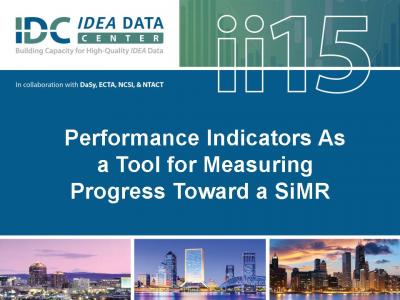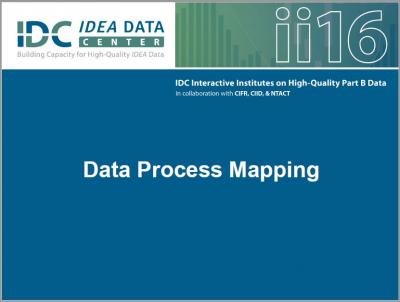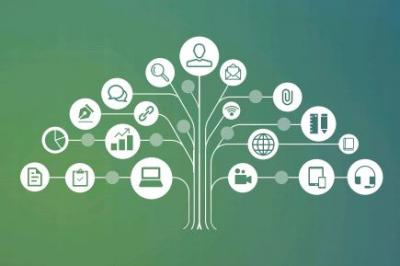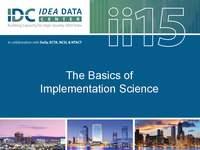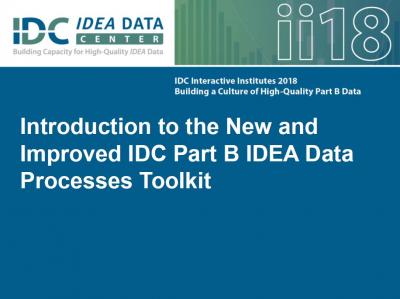Site Search
Results 1 - 7 of 11
Format: Presentations
Performance Indicators As a Tool for Measuring Progress Toward a SiMRThis presentation provides guidance on the evaluation of SSIP by differentiating between evaluating implementation and impact and reviews possible measures of progress toward achieving the SIMR. Participants discussed and provided input into development of an IDC white paper on the topic. Currently, the white paper is in draft form and undergoing revisions based on input from the field. The published paper will be posted to the IDC Resource Library and affiliated as a related resource to the handout already posted for this session.
Format: Presentations
Data Process MappingDo you ever wonder what other states are doing to ensure high-quality data? Participants of this session learned about the work that the Kentucky Department of Education is undertaking to create data process protocols, build capacity of data stewards, and institute a culture of high-quality data. This work is being accomplished using the new IDC Data Processes Toolkit. Presenters provided an overview of the toolkit, and participants had an opportunity to experience “preparing for this work.”
Format: Toolkits
SEA Data Processes ToolkitUsing the SEA Data Processes Toolkit to document data processes for all 616 and 618 data collections will establish a well-managed process for data collection, validation, and submission. In collaboration with IDC State Liaisons, states can use the toolkit to create and maintain a culture of high-quality data and establish and support consistent practices that produce valid and reliable data, while building the capacity of state staff.
Format: Toolkits and Templates
Part C IDEA Data Processes ToolkitUsing the Part C IDEA Data Processes Toolkit to document data processes for all 616 and 618 data collections will establish a well-managed process for data collection, validation, and submission. In collaboration with IDC State Liaisons, states can use the toolkit to create and maintain a culture of high-quality data and establish and support consistent practices that produce valid and reliable data, while building the capacity of state staff. The toolkit contains an overview of the toolkit, Data Collection Protocols, SPP/APR Indicator Protocols, a State Landscape Protocol, a Local EI Program Determinations Protocol, a Data Collections Calendar, and additional resources that provide a structure for documenting data processes. The Data Collection Protocols are in Word, and states can tailor them meet their states' specific documentation needs.
Format: Presentations
Cohort Selection - Making Decisions on Where to Focus ImplementationSelection of a cohort, or Transformation Zone, for SSIP implementation is a principle consideration in developing an action plan. The presentation addresses variables that states should considered in making those decisions and provides information on methods to determine readiness and eliciting involvement of an LEA/EIS.
Format: Presentations
The Basics of Implementation ScienceThe presentation presents an overview on developing an infrastructure that supports implementation, scale-up, and sustainability of effective practices and highlights core components of implementation. Highlighted components include: Implementation Stages, Implementation Drivers, Implementation Teams, Usable Interventions, and Improvement Cycles.
Format: Presentations
Introduction to the New and Improved IDC Part B IDEA Data Processes ToolkitThis workshop provided a brief overview of the new IDC IDEA Part B 616 Data Processes Toolkit. Several states that have piloted the toolkit shared their experiences with creating data processes for the SPP/APR indicators, building capacity of data stewards, and instilling a culture of high-quality data. Presenters facilitated discussion that helped participants understand the value of data processes documentation and afforded them an opportunity to experience preparing for and beginning this work.


